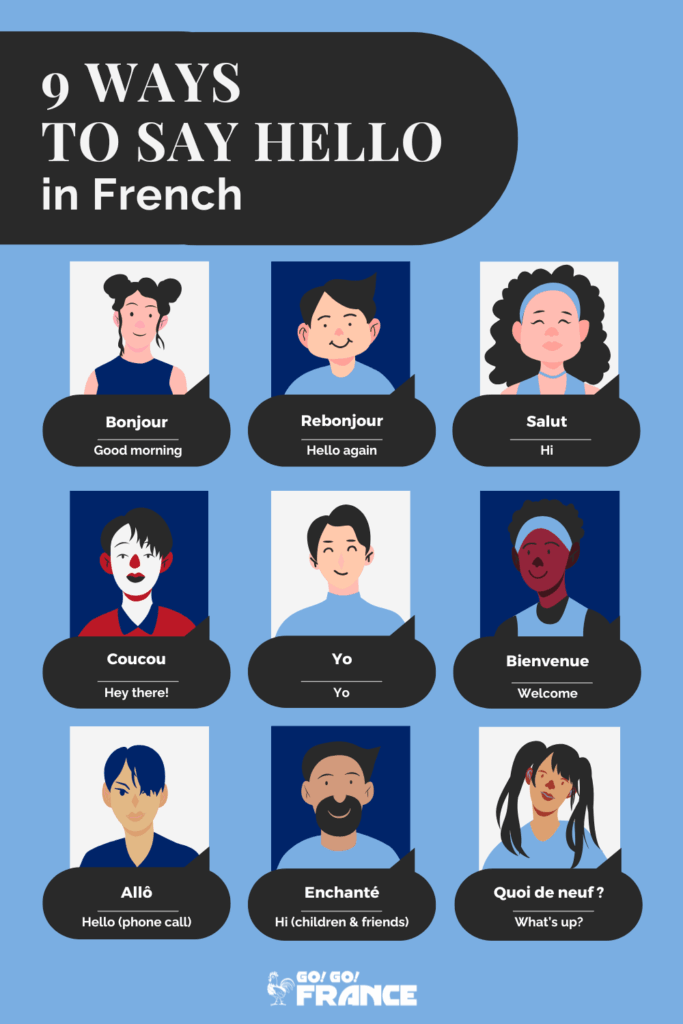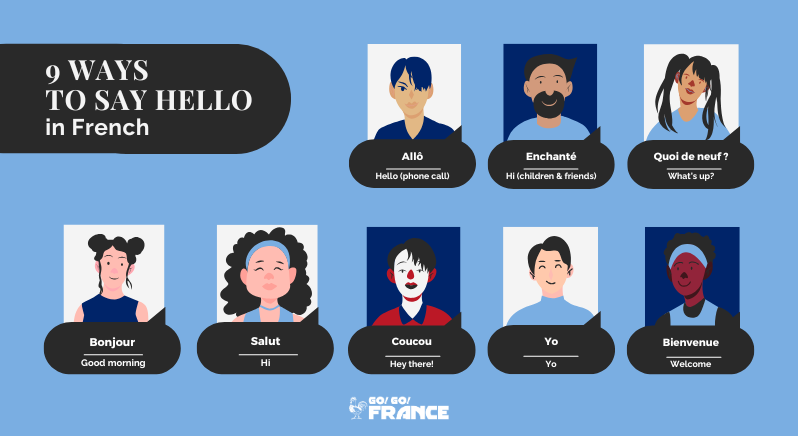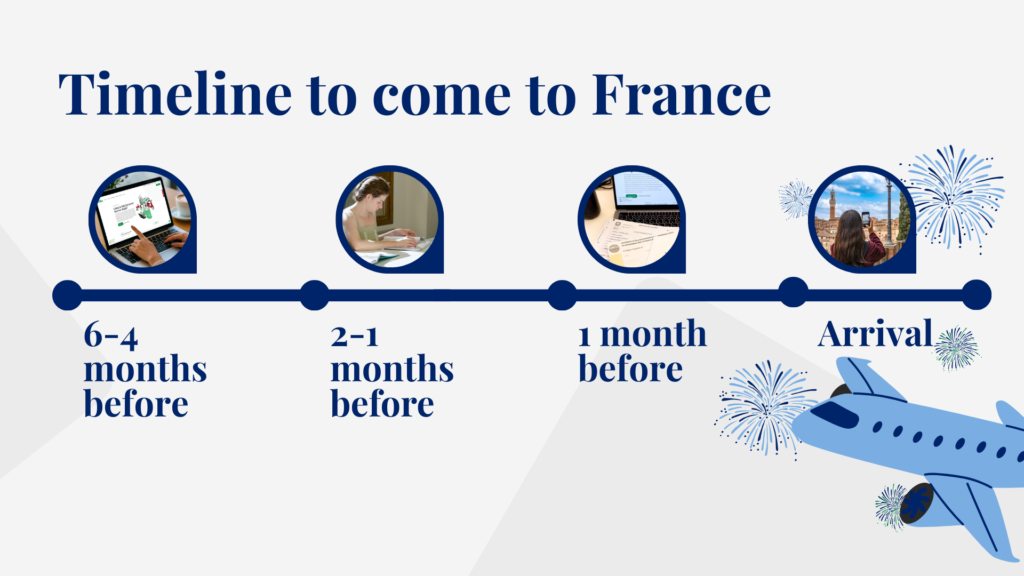Knowing how to greet people properly is essential—especially in French culture, where greetings go beyond simple words. They convey respect, familiarity, and social awareness.
This guide will walk you through the most common French greetings and the appropriate gestures to accompany them.
Introduction to French greetings
In France, greetings are more than polite formalities—they’re social essentials. Saying bonjour when entering a shop, beginning a conversation, or joining a group is expected and considered a fundamental sign of good manners.
Neglecting to greet someone can be seen as rude or dismissive, even in casual interactions. That’s why mastering the art of greeting in French is so important—and exactly what we’re here to help you do.

Common French greetings you should know
1. Bonjour / Bonsoir
Meaning: Good morning / Good evening / Hello
Use: Universal and polite
Bonjour is the most standard and widely used French greeting. It fits in nearly every setting—shops, classrooms, workplaces, or when meeting someone new. It’s customary to greet everyone with bonjour when you enter a room or space. After around 6 PM, switch to bonsoir (good evening).
2. Salut / Coucou
Meaning: Hi / Hi there
Use: Informal, with friends and peers
Salut is a casual, friendly greeting. Coucou is even more playful and affectionate, often used with close friends, children, or in text messages.
3. À bientôt / À demain / À tout à l’heure
Meaning: See you soon / See you tomorrow / See you later
Use: Friendly, forward-looking farewells
These phrases express an expectation of seeing the person again.
- À tout à l’heure: When you’ll see them again later the same day
- À bientôt: When you hope to see them again soon
- À demain: When you’ll see them the next day
4. Bonne journée / Bonne soirée / Bonne nuit
Meaning: Have a good day / Have a good evening / Good night
Use: Parting wishes, depending on the time of day
These phrases are polite ways to wish someone well when saying goodbye, depending on the time of day.
- Bonne journée: Used in the morning or afternoon
- Bonne soirée: Used in the evening, for example when leaving work
- Bonne nuit: Reserved for bedtime or saying goodnight to close ones
5. Au revoir
Meaning: Goodbye
Use: Standard and respectful farewell
This is the go-to goodbye in almost all situations, formal or casual. It’s polite and neutral.
6. Allô
Meaning: Hello (on the telephone)
Use: Only on the telephone
Used exclusively when answering or starting a phone call.
7. Bienvenue
Meaning: Welcome
Use: To welcome someone to a place or event
Say this when someone arrives at your home, event, or city.
8. Enchanté
Meaning: Nice to meet you
Use: Polite, when meeting someone for the first time
Enchanté is appropriate for most casual and semi-formal contexts. In professional settings, you can also say Ravi(e) de faire votre connaissance for a more formal tone.
Informal French greetings
Among younger generations, you’ll often hear slang greetings like yo or wesh instead of salut. These are usually followed by casual check-ins like La forme ? (Feeling good?), Ça roule ? (How’s it going?) or Quoi de neuf ? (What’s up?). These phrases are strictly for informal, friendly contexts.
French people also frequently shorten standard phrases in casual conversation. For example: À plus tard becomes À plus, and À tout à l’heure becomes À toute.
La bise (cheek kiss)
Although it might feel unfamiliar at first, la bise—a light kiss on the cheeks—is a deeply rooted part of French culture. It’s the customary greeting among friends, family, colleagues in informal workplaces, or even acquaintances like a friend of a friend.
Typically, both people greet each other while kissing each cheek lightly. The number of kisses varies by region, ranging from two to four.
La poignée de main (Handshake)
In formal or professional contexts, or when la bise feels inappropriate, a handshake is the standard. It’s firm, brief, and used when meeting someone or concluding a meeting.
How to address people with the right title
Using appropriate titles in French demonstrates respect and cultural awareness.
When in doubt, default to Bonjour Monsieur or Bonjour Madame rather than a simple Bonjour. If you want to show even more cultural fluency, here are common titles:
| Title | Meaning |
|---|---|
| Monsieur | Mr. |
| Madame | Mrs. |
| Mademoiselle | Miss |
| Docteur | Doctor |
| Professeur | Professor / Teacher |
| Maître | Lawyer / Legal professional |
| Directeur / Directrice | Director / Principal |
For more information about French language and culture, keep following our Go! Go! France blog.





